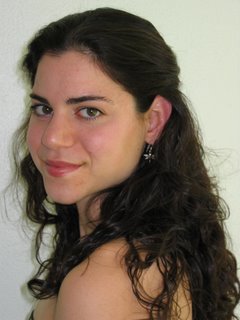Dietitian vs. Nutritionist
I frequently get asked what is the difference between a Dietitian (RD) and a nutritionist?
To begin with...yes:
1) A dietitian must have completed a 4 year Bachelors degree in Nutrition, and dietetics. These classes are similar to pre-med biology classes, we must take anatomy and physiology, biochemistry, organic chemistry, along with a host of other nutrition classes which are all very scientifically based.
2) additionally, we must complete a year-long internship in a hospital/clinical setting. This is very similar to how physicians do residency in hospitals. It is our training.
3) We do not just deal with diet.
4) Every day we examine patients, look at blood labs, understand their chemistries. We must understand their disease states, and how it affects their internal organs.
5) For patients on respirators, they cannot eat. Therefore, we must be able to determine what their needs are and determine how to best feed them, whether that be through a feeding tube or through an IV.
For me, I enjoy doing IV nutrition, because it involves understanding the breakdown of the different nutrients into their most basic components:
1) Carbs = dextrose, which breaks down into two glucose molecules
2) Fats = lipids, which are essential for the structure of cell membranes and other body functions.
3) Proteins = Amino Acids, build muscle, hair, other building blocks.
Therefore, we must know FAR MORE than what one eats.
However, there are dietitians who do not work in the hospital, they may work in outpatient programs, or in schools, or in their own private practice, and more often do deal with food.
The thing I want people to understand is that...just because I'm a dietitian, it doesn't mean I just focus on what people eat, or how they can lose weight...or I'm not just the lady behind the counter dumping food on your plate.
There is a lot more schooling that is involved...and there are registration exams that we must take to be credentialed. These exams are like the boards physicians take (albeit not as long or as involved.)
Meanwhile, any Joe-schmo can call himself or herself a nutritionist. Thanks!
Hope that answers that common question.
To begin with...yes:
1) A dietitian must have completed a 4 year Bachelors degree in Nutrition, and dietetics. These classes are similar to pre-med biology classes, we must take anatomy and physiology, biochemistry, organic chemistry, along with a host of other nutrition classes which are all very scientifically based.
2) additionally, we must complete a year-long internship in a hospital/clinical setting. This is very similar to how physicians do residency in hospitals. It is our training.
3) We do not just deal with diet.
4) Every day we examine patients, look at blood labs, understand their chemistries. We must understand their disease states, and how it affects their internal organs.
5) For patients on respirators, they cannot eat. Therefore, we must be able to determine what their needs are and determine how to best feed them, whether that be through a feeding tube or through an IV.
For me, I enjoy doing IV nutrition, because it involves understanding the breakdown of the different nutrients into their most basic components:
1) Carbs = dextrose, which breaks down into two glucose molecules
2) Fats = lipids, which are essential for the structure of cell membranes and other body functions.
3) Proteins = Amino Acids, build muscle, hair, other building blocks.
Therefore, we must know FAR MORE than what one eats.
However, there are dietitians who do not work in the hospital, they may work in outpatient programs, or in schools, or in their own private practice, and more often do deal with food.
The thing I want people to understand is that...just because I'm a dietitian, it doesn't mean I just focus on what people eat, or how they can lose weight...or I'm not just the lady behind the counter dumping food on your plate.
There is a lot more schooling that is involved...and there are registration exams that we must take to be credentialed. These exams are like the boards physicians take (albeit not as long or as involved.)
Meanwhile, any Joe-schmo can call himself or herself a nutritionist. Thanks!
Hope that answers that common question.


0 Comments:
Post a Comment
<< Home